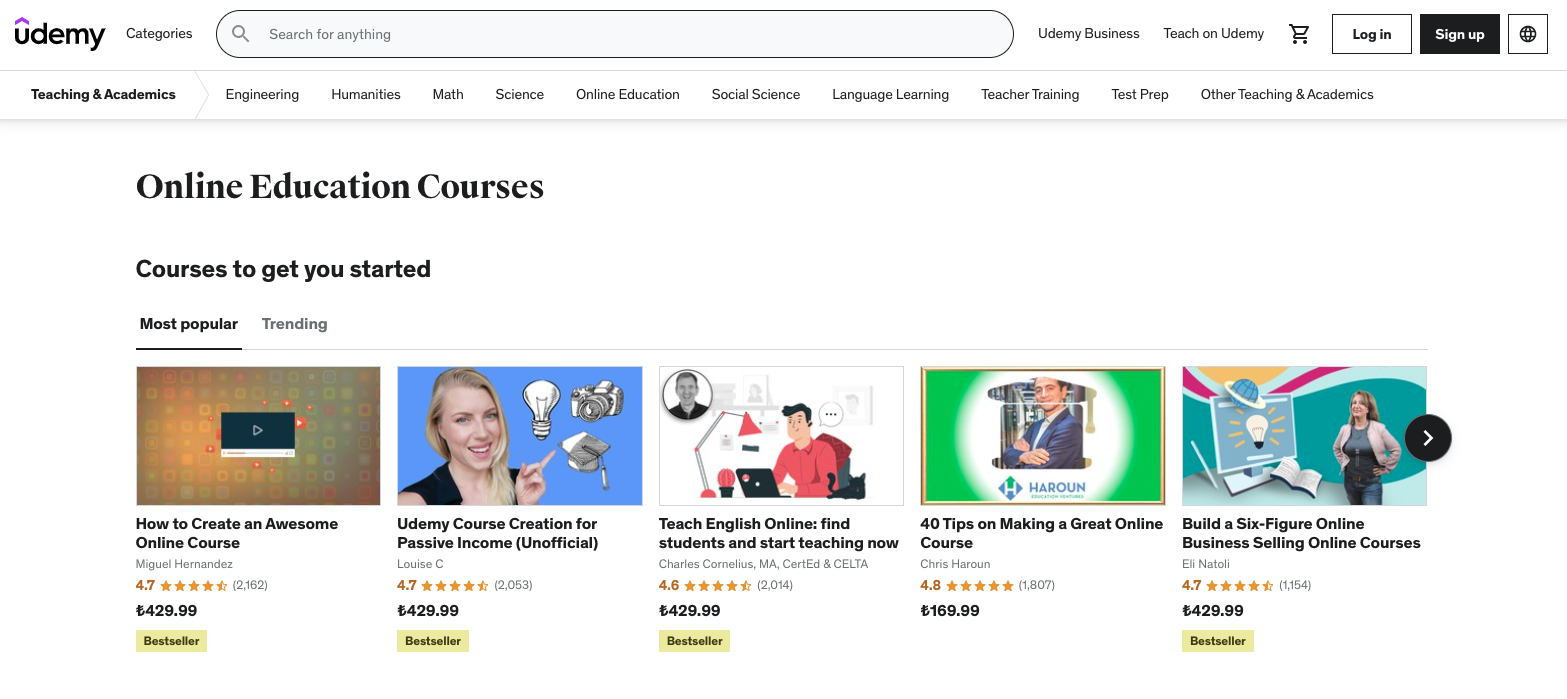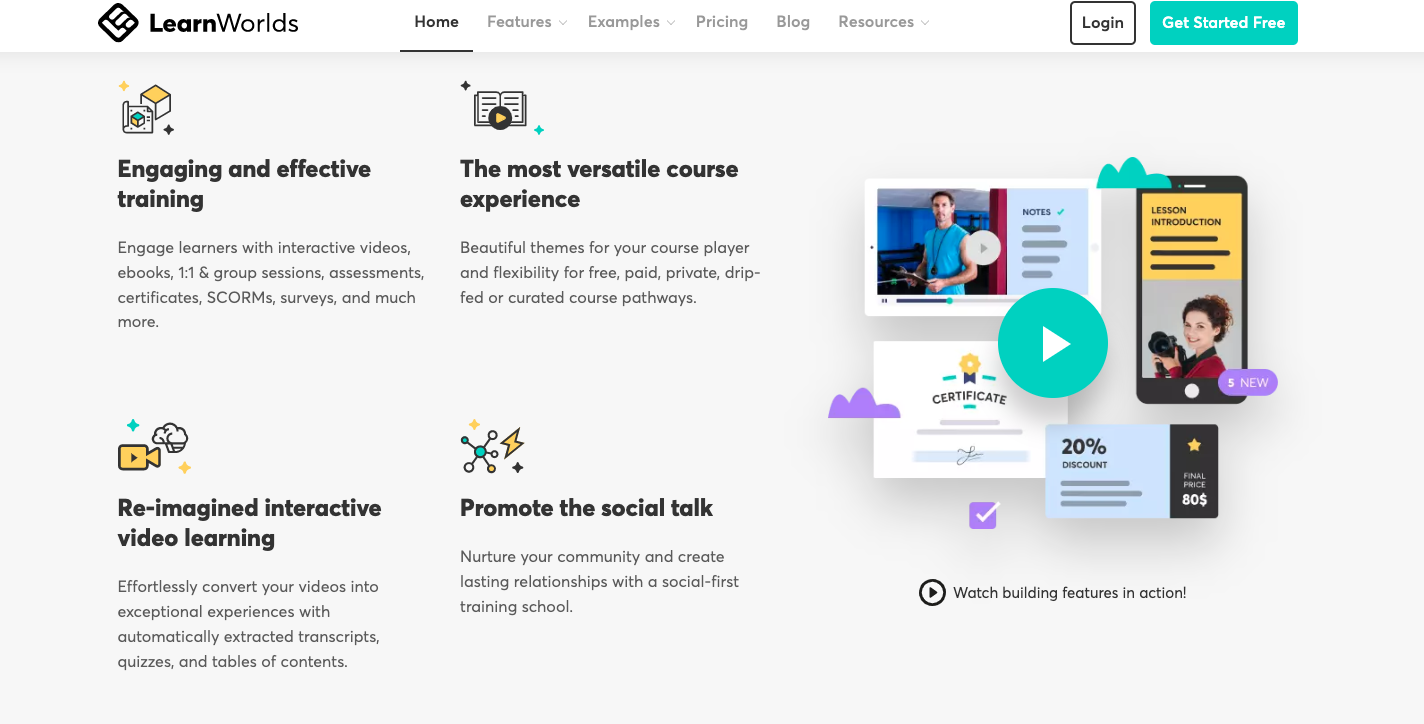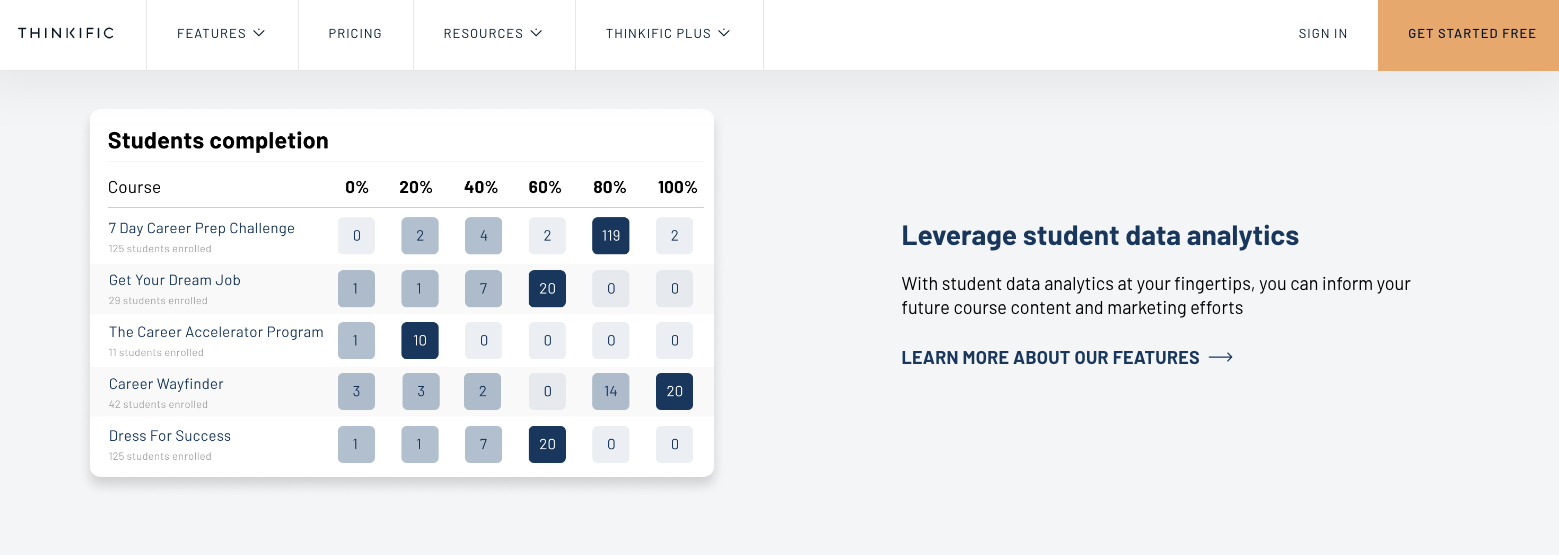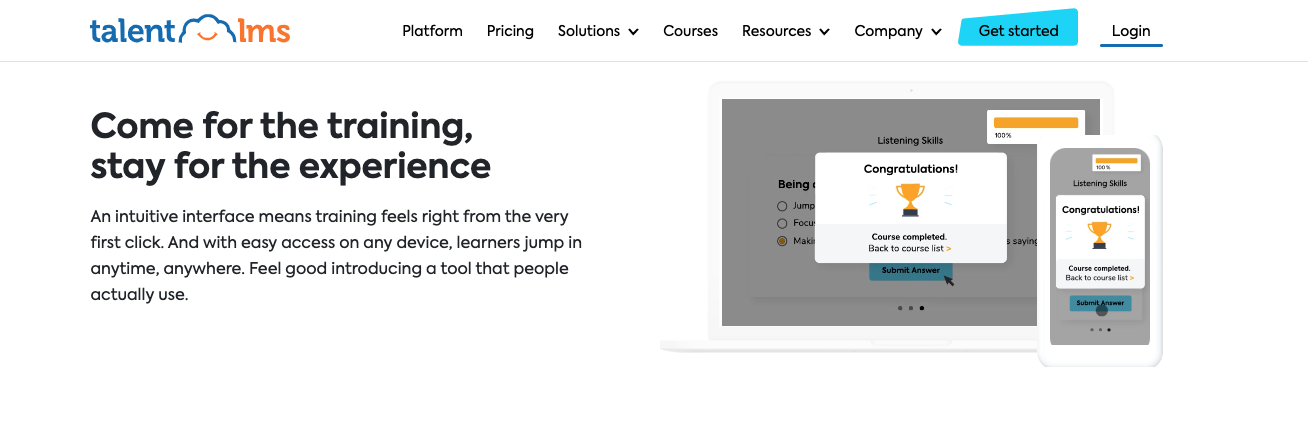6 alternatives to Kajabi
The events of 2020 forced many people to break free from the old ways of working. That reset helped people realize that digital work no longer requires a constant physical presence.
It also helped a lot of people reevaluate how they earn a living. Tired of low wages and long commutes, many people set off to become self-employed thought leaders, coaches, and educators. Many others are seeking to improve their skills, their careers, and their lives through online learning.
Tools like Kajabi help connect education entrepreneurs (or edupreneurs) with highly driven self-educators. But as nice as Kajabi is, there are other tools you can explore to educate your audience. Here are six Kajabi alternatives to consider.
1. Udemy

Udemy is an online education platform with over 100,000 courses. You can learn almost anything with Udemy, and the educators are often professionals in their field who provide solid information.
If you think you have what it takes to teach, Udemy is an excellent option. You can reach a large audience without a lot of marketing or setup. The one drawback is that people come to Udemy for a wide selection of courses — not necessarily courses in your subject. However, you can use Udemy to bootstrap your education business.
People who receive value from your Udemy course will often look more deeply into your online presence. You can leverage that to get blog and newsletter subscribers. You can also sell them more advanced courses and personalized services.
It’s free to be an instructor on Udemy. However, getting paid is a bit complicated. Udemy uses a revenue-sharing system rather than paying instructors a fixed percentage.
2. Coursera

If you represent a large company, government agency, or educational institution, Coursera might be your best choice for offering courses. Coursera houses college-level courses from many major universities as well as certificate programs and skills-based classes for major companies like Google and IBM.
3. LearnWorlds

LearnWorlds is a great solution if you’re running an actual school with multiple instructors or if you have a lot of courses. It doesn’t restrict the number of courses you can offer at any tier.
LearnWorlds offers a feature set that’s comparable to Kajabi’s, including analytics, video tools, and community management for learners.
LearnWorlds is also more affordable than Kajabi for beginners. The lowest tier plan starts at only $29 per month. The catch is that they charge you $5 per course sale at that tier. But the next tier up is only $99 per month, so it pays for itself once you have a foothold.
You can read our article on Learnworlds’ pricing plans for more information about LearnWorlds’ features and pricing plans.
4. Thinkific

Thinkific is another classroom service that’s very similar to LearnWorlds and Kajabi. Perhaps the biggest distinction is their dedication to supporting the educators that use their service.
Thinkific offers an extensive knowledge base and live webinars, as well a large Facebook group to help educators collaborate. With Thinkific Plus, you can get a dedicated team for priority customer support as well as help with implementing and launching courses.
Thinkific has a generous free tier to really help you get started. The pricing is more affordable than Kajabi overall.
5. TalentLMS

TalentLMS is a more general-purpose education software. It has the most five-star reviews of any of the other big three options on this list (Kajabi, LearnWorlds, Thinkific) according to software rating site G2. TalentLMS also has more reviews from medium to large-sized companies.
Its popularity comes from the fact that it’s a learning management system (LMS). If you need a tool to train employees and teams rather than college students, TalentLMS is probably more what you’re looking for.
Despite its enterprise flavor, TalentLMS has options that are affordable for smaller companies as well. They even have a free tier for up to five users. The catch is that they limit the number of users at every tier, so it would likely never be the best solution for coaches and edupreneurs.
6. The DIY approach
If you are a tech-savvy edupreneur, want a completely customizable solution, or just enjoy putting things together from scratch, you may want to build your own solution. It will be more work, but you won’t be locked into using someone else’s system.
To get started, you’ll need a website from WordPress, Wix, Squarespace, or other website provider. From there, you can leverage online tools that are easy to embed and integrate well with other software. For example, you can embed videos from a number of sources like Vimeo and YouTube. You can also manage student communication with email tools like Mailchimp.
One versatile tool that can handle a lot of the heavy lifting is Jotform. You can use Jotform to collect emails, student registrations, and course fees. And of course, you can also use it for quizzes.
You can even embed videos and other educational elements directly in your forms. Jotform also lets you create a code-free course management system with Jotform Tables. Even if you use one of the solutions above, Jotform is a great tool to collect information and course feedback from your students.







































































































Send Comment: